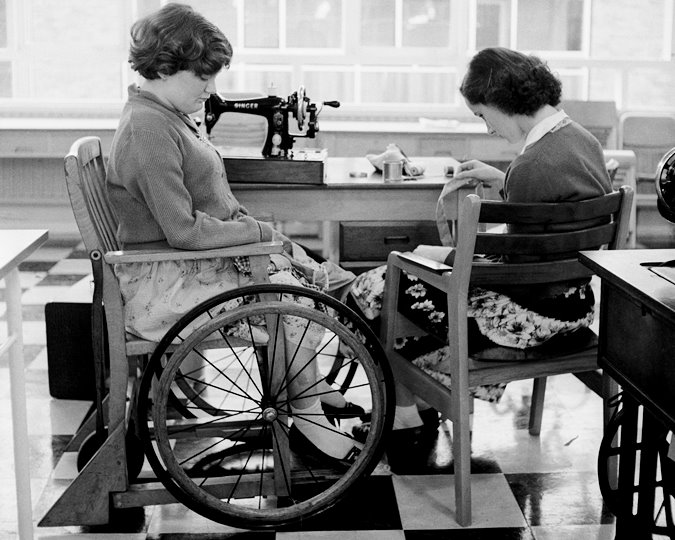Many things have changed in recent years. To understand a little more about what more modern childhood experiences were for Londoners, we reached out to our Disability & Inclusion Staff Network.
Clare Baker, our Visitor Experience Training and Development Coordinator says, “From my perspective, it was a great advantage to be able to go to the local school and the same school as my siblings. I was able to utilise the full range of education including taking GCSEs and A-Levels.”
“I did feel a bit of the odd one out and thought potentially teachers had lower expectation of my academic abilities. One memory was of my art classes where the teacher had been assuming my support worker completed work on my behalf. When one day my support worker was sick the art teacher was obviously shocked when I produced a high-quality piece of work ‘unaided’.”
“They didn’t have the resources to teach me Braille, which would be a standard skill taught in a school for blind children. Overall, the school did the best job they could considering their potential lack of specialist training, resources and awareness”.
We looked through oral history recordings of people recounting their childhood in museum’s collection, and came across an interview with one Stanley Rothwell from 1979-1980. He recounts this experience from his early years: “And this inspector came along…he said ‘Say niney-nine’. I said ‘ninety-nine’. He said, ‘Again’, I said, ‘ten’, because I’m hard of hearing you see and everybody laughed at me.”


